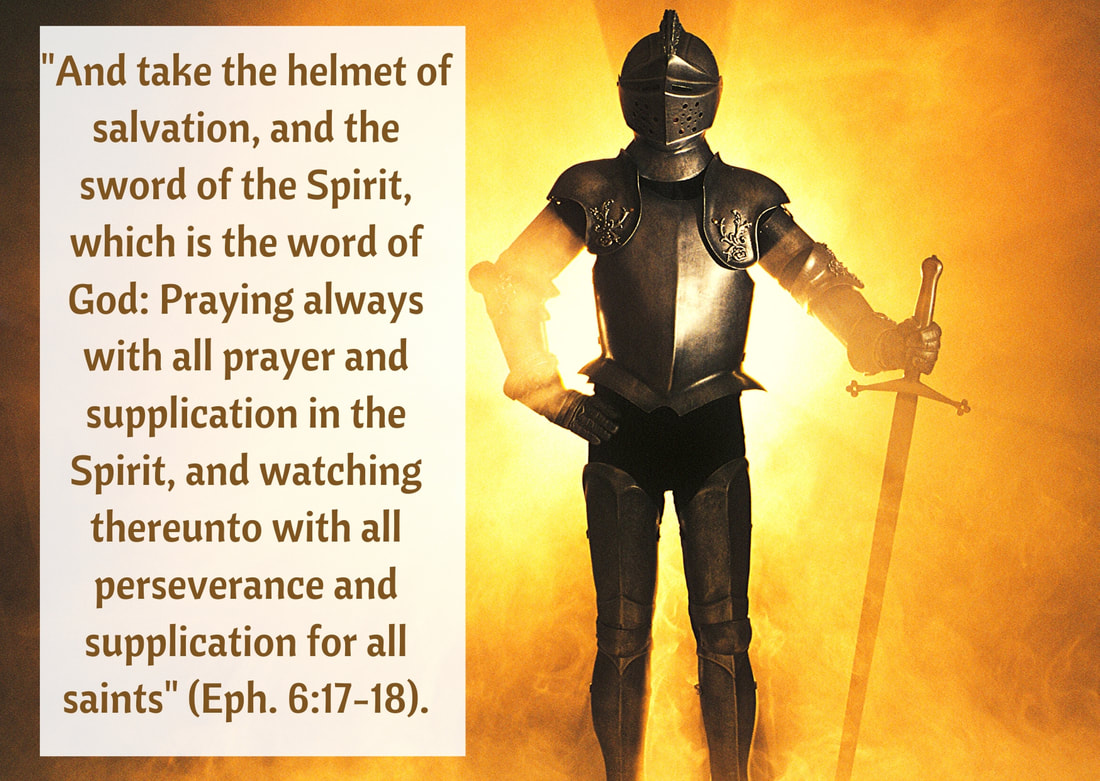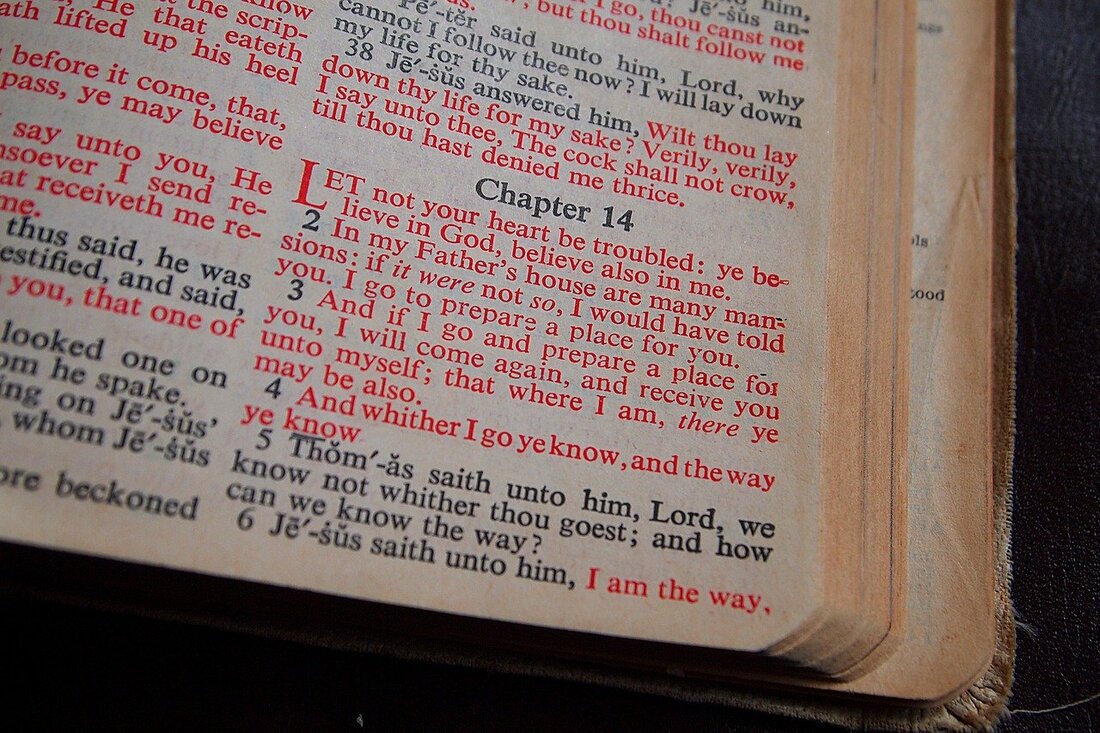|
THE Lord turned the captivity of Job." So, then, our longest sorrows have a close, and there is a bottom to the profoundest depths of our misery. Our winters shall not frown forever: summer shall soon smile. The tide shall not eternally ebb out: the floods must retrace their march. The night shall not hang its darkness forever over our souls: the sun shall yet arise with healing beneath his wings. "The Lord turned the captivity of Job." Thus, too, our sorrows shall have an end when God has gotten His end in them. The ends in the case of Job were these, that Satan might be defeated, foiled with his own weapons, blasted in his hopes when he had every thing his own way. God, at Satan's challenge, had stretched forth his hand and touched Job in his bone and in his flesh; and yet the tempter could not prevail against him, but received his rebuff in those conquering words, "Though he slay me, yet will I trust in Him." When Satan is defeated, then shall the battle cease. The Lord aimed also at the trial of Job's faith. Many weights were hung upon this palm-tree, but it still grew uprightly. The fire had been fierce, yet the gold was undiminished; only the dross was consumed. Another purpose the Lord had was His own glory. And truly He was glorified abundantly. God hath gotten unto His great name and His wise counsels, eternal renown, through that grace by which He supported His poor afflicted servant under the heaviest troubles which ever fell to the lot of man. God had another end, and that also was served. Job had been sanctified by his afflictions. His spirit was mellowed, and any self-justification which lurked within was fairly driven out. And now that God's gracious designs are answered, He removes the rod; He takes the melted silver from the midst of the glowing coals. God doth not afflict willingly, nor grieve the children of men for nought, and He shows this by the fact He never afflicts them longer than there is a need for it. He never suffers them to be one moment longer in the furnace than is absolutely requisite to serve the purposes of His wisdom and of His love. "The Lord turned the captivity of Job." Despair not, then, afflicted believer; he that turned the captivity of Job can turn thy captivity as the streams in the south. He shall make thy vineyard again to blossom, and thy field to yield her fruit. Thou shalt again come forth with those that make merry, and once more shall the song of gladness be on thy lip. Let not Despair rivet his cruel fetters about thy soul. Hope yet, for there is hope concerning this matter. Trust thou still, for there is ground of confidence. He shall bring thee up again, rejoicing, out of captivity, and thou shalt yet sing to his praise, "Thou hast turned for me my mourning into dancing: thou hast put off my sackcloth, and girded me with gladness." ~ Charles H. Spurgeon
0 Comments
THE Christian's battle-field is here, but the triumphal procession is above. This is the land of the sword and the spear: that is the land of the wreath and the crown. This is the land of the garment rolled in blood and of the dust of the fight: that is the land of the trumpet's joyful sound, the place of the white robe and of the shout of conquest. O, what a thrill of joy shall be felt by all the blessed, when their conquests shall be complete in heaven; when death itself, the last of foes, shall be slain; when Satan shall be dragged captive at the chariot wheels of Christ; when the great shout of universal victory shall rise from the hearts of all the redeemed! What a moment of pleasure shall that be! Something of the joy of victory we know even here. Have you ever struggled against an evil heart, and at last overcome it? Have you ever wrestled hard with a strong temptation, and known what it was to sing with thankfulness, "When I said my feet slipped, Thy mercy, O Lord, held me up?" Have you, like Bunyan's Christian, fought with Apollyon, and after a fierce contest, put him to flight? Then you have had a foretaste of the heavenly triumph—just an imagining of what the ultimate victory will be. God gives you these partial triumphs, that they may be earnests of the future. Go on and conquer,and let each conquest, though a harder one, and more strenuously contested, be to you as a pledge of the victory of heaven. ~ Charles H. Spurgeon IT is said, that when the stars cannot be seen during the day from the ordinary level of the earth, if one should go down into a dark well, they would be visible at once. And certainly it is a fact, that the best of God's promises are usually seen by His Church when she is in her darkest trials. As sure as ever God puts His children in the furnace, He will be in the furnace with them. I do not read that Jacob saw the angel, until he came into a position where he had to wrestle, and then the wrestling Jacob saw the wrestling angel. I do not know that Joshua ever saw the angel of God, till he was by Jericho; and then Joshua saw the angelic warrior. I do not know that Abraham ever saw the Lord, till he had become a stranger and a wanderer in the plains of Mamre, and then the Lord appeared unto him as a wayfaring man. It is in our most desperate sorrows that we have our happiest experiences. You must go to Patmos to see the revelation. It is only on the barren, storm-girt rock, shut out from all the world's light, that we can find a fitting darkness, in which we can view the light of heaven undistracted by the shadows of earth. ~ Charles H. Spurgeon IT is a tough battle which the Christian is called to fight; not one which carpet knights might win; no easy skirmish which he might gain, who dashed to battle on some sunshiny day, looked at the host, then turned his courser's rein, and daintily dismounted at the door of his silken tent. It is not a campaign which he shall win, who, but a raw recruit to-day, foolishly imagines that one week of service will insure a crown of glory. It is a life-long war; a contest which will require all our strength, if we are to be triumphant; a battle at which the stoutest heart might quail; a fight from which the bravest would shrink, did he not remember that the Lord is on his side; therefore whom shall he fear? God is the strength of his life: of whom shall he be afraid? This fight is not one of main force, or physical might; if it were, we might the sooner win it; but it is all the more dangerous from the fact that it is a strife of mind, a contest of heart, a struggle of the spirit—ofttimes an agony of the soul. Do you wonder that the Christian is called to conflict? God never gives strong faith without fiery trial; he will not build a strong ship, without subjecting it to very mighty storms; he will not make you a mighty warrior, if he does not intend to try your skill in battle. The sword of the Lord must be used; the blades of heaven must be smitten against the armor of the evil one, and yet they shall not break, for they are of true Jerusalem metal, which shall never snap. We shall conquer, if we begin the battle in the right way. If we have sharpened our swords on the cross, we have nothing whatever to fear; for though we may be sometimes cast down and discomforted, we shall assuredly at last put to flight all our adversaries, for we are the sons of God even now.[Why, then, should we fear? Who shall bid us "stay," if God bid us advance? ~ Charles H. Spurgeon THE promises of God are to the believer an inexhaustible mine of wealth. Happy is it for him if he knows how to search out their secret veins, and enrich himself with their hid treasures. They are an armory, containing all manner of offensive and defensive weapons. Blessed is he who has learned to enter into the sacred arsenal, to put on the breastplate and the helmet, and to lay his hand to the spear and to the sword. They are a surgery, in which the believer will find all manner of restoratives and blessed elixirs; nor lacks there an ointment for every wound, a cordial for every faintness, a remedy for every disease. Blessed is he who is well skilled in heavenly pharmacy, and knoweth how to lay hold on the healing virtues of the promises of God. The promises are to the Christian a storehouse of food. They are as the granaries which Joseph built in Egypt, or as the golden pot wherein the manna was preserved. Blessed is he who can take the five barley loaves and fishes of promise, and break them till his five thousand necessities shall all be supplied, and he is able to gather up baskets full of fragments. The promises are the Christian's Magna Charta of liberty; they are the title deeds of his heavenly estate. Happy is he who knoweth how to read them well, and call them all his own. Yea, they are the jewel room in which the Christian's crown treasures are preserved. The regalia are his, secretly to admire to-day, which he shall openly wear in Paradise hereafter. He is already privileged as a king with the silver key that unlocks the strong room; he may even now grasp the sceptre, wear the crown, and put upon his shoulders the imperial mantle. O, how unutterably rich are the promises of our faithful, covenant-keeping God! If we had the tongue of the mightiest of orators, and if that tongue could be touched with a live coal from off the altar, yet still it could not utter a tenth of the praises of the exceeding great and precious promises of God. Nay, they who have entered into rest, whose tongues are attuned to the lofty and rapturous eloquence of cherubim and seraphim, even they can never tell the height and depth, the length and breadth of the unsearchable riches of Christ, which are stored up in the treasure-house of God—the promises of the covenant of His grace. ~ Charles H. Spurgeon |
AuthorCharles H. Spurgeon ArchivesCategories
All
|






 RSS Feed
RSS Feed